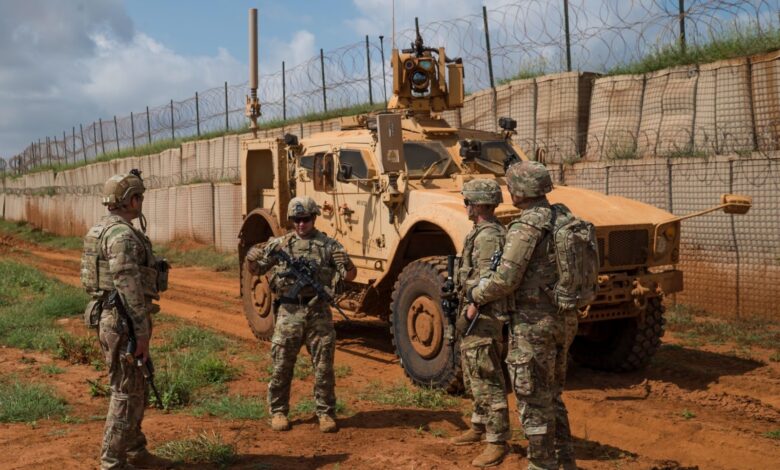US Redeploys Forces To Somalia, Targets Al Shabab Leaders
The United States has redeployed troops to Somalia after their withdrawal allowed Al Shabab to grow and expand.

The United States has approved the redeployment of hundreds of special operations forces in Somalia, with the authority to target a dozen Al-Shabab leaders in the war-torn country.
President Joe Biden approved the request, overturning former President Donald Trump’s decision to withdraw all US ground troops from the country in 2020.
Since the withdrawal of US forces from Somalia, reports have indicated that Al-Shabab, an Alqaeda affiliate, has grown larger and outgunned the country’s US-backed forces.
For several years, US special operations forces had been assisting local units fighting Al-Shabab but Donald Trump ordered their withdrawal shortly before leaving office.
Al-Shabab has an estimated 5,000 to 7,000 fighters, and after the US withdrawal, they gained freedom of movement, allowing them to attack more frequently than before.
For several years, the terrorist organisation has been expanding its territory and recruiting new members in Somalia. The group has also targeted locations in Kenya, with plans to expand to other East African countries.
According to Adrienne Watson, the National Security Council spokesperson, the US decision to redeploy forces will allow for “a more effective fight against Al Shabab.”
“The decision was made to maximise the safety and effectiveness of our forces and enable them to provide more efficient support to our partners,” she explained.
Some analysts, however, have criticised the move, claiming that redeploying US troops back to Somalia will only prolong the conflict because 15 years of US presence in the country could not end the war.
“Sending in more US troops and honing in on a small number of senior Al Shabab leadership is narrow in its aim and by definition cannot end the broader military fight absent more concerted and effective diplomatic and political efforts by the United States and others,” Sarah Harrison, a senior analyst with International Crisis Group, said.
Support Our Journalism
There are millions of ordinary people affected by conflict in Africa whose stories are missing in the mainstream media. HumAngle is determined to tell those challenging and under-reported stories, hoping that the people impacted by these conflicts will find the safety and security they deserve.
To ensure that we continue to provide public service coverage, we have a small favour to ask you. We want you to be part of our journalistic endeavour by contributing a token to us.
Your donation will further promote a robust, free, and independent media.
Donate HereStay Closer To The Stories That Matter




